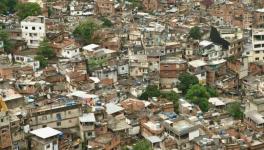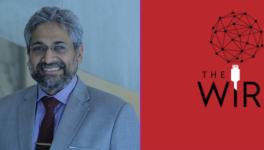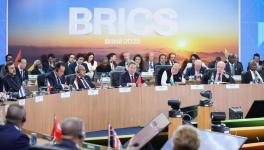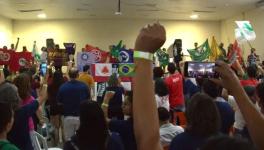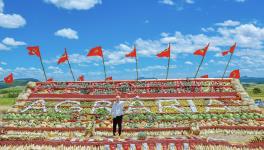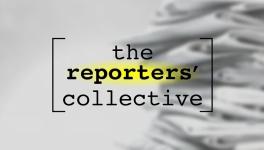Wikileaks Delegation in Latin America to Rally Support for Assange’s Release
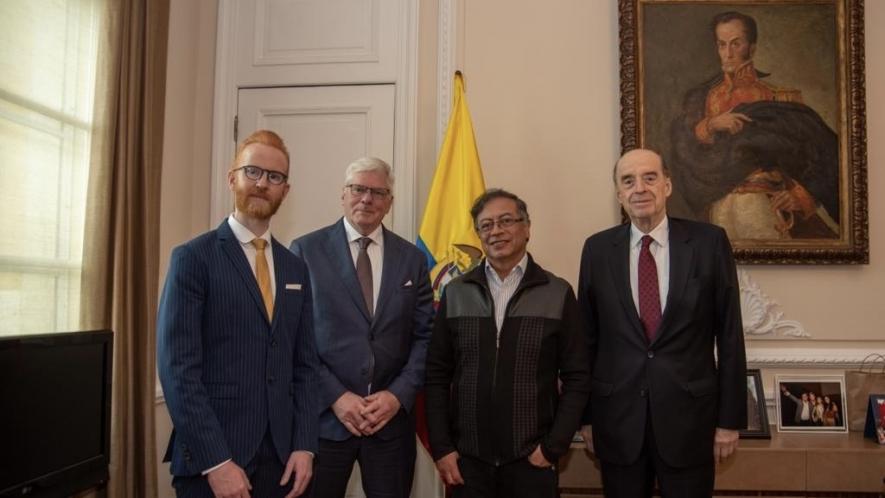
(Left to right) Wikileaks’ Joseph Farrell and Kristinn Hrafnsson, met Colombian president Gustavo Petro and foreign minister Alvaro Leyva Duran in Bogota on November 21. Photo: Assange Defense
A delegation from Wikileaks is on a tour across Latin America to drum up support from various social movements and progressive governments in the region to call for Julian Assange’s release. The delegation consisting of Kristinn Hrafnsson, editor-in-chief of Wikileaks, and Joseph Farrell, journalist and Wikileaks ambassador, are set to finish their Brazil leg of the tour on November 30.
The duo had already completed a visit to Colombia between November 22 and 24, before coming to Brazil. There, they met with the leftist president Gustavo Petro and Colombian foreign minister Alvaro Leyva Duran as part of their larger campaign to organize international solidarity for Assange.
In a press release Hrafnsson stated that they were “content with the outcome of the meeting” and that Petro and Duran showed “their commitment and support for Julian Assange’s freedom, and strongly recognized the implications for press freedom worldwide that Assange’s extradition would set.”
He further added that both Petro and Duran assured their assistance in raising among Latin American leaders and to “collectively and individually urge the Biden administration to drop the charges brought by the Trump administration and grant Assange his long overdue freedom.”
In Brazil, the duo are expecting to hold a meeting with Brazil’s leftist president-elect Luiz Inácio Lula da Silva. Da Silva is already one of the most prominent political leaders to defend the imprisoned Wikileaks publisher. In September 2020, he published an op-ed in The Guardian calling Assange a “champion of democracy” and calling for his immediate unconditional release. Now that da Silva is back on the world stage as an elected president, the delegation hopes to secure a similar commitment.
Apart from a meeting with Lula, the two are also expected to meet with the civil society groups, trade unions, federations and journalist guilds to not only raise solidarity for Assange but also to campaign in defense of the right to information.
The visit to Brazil is being coordinated by the International Peoples’ Assembly (IPA) and is part of a series of events and meetings that the two will be participating across Latin America with political and social leaders, movements, organized civil society and all those who support Assange’s release.
They are expected to participate in an event at the Brazilian Press Association (ABI), in Rio de Janeiro, where they will meet with representatives of Union of Journalists of São Paulo, Reporter Without Borders (RSF), Instituto Vladimir Herzog, Artigo 19, Network for the Protection of Journalists and Communicators in Brazil, Committee to Protect Journalists (CPJ), National Federation of Journalists (FENAJ), Brazilian Association of Investigative Journalism (Abraji), Tornavoz, Association of Digital Journalism (Ajor), Intervozes, and National Forum for the Democratization of Communication (FNDC).
“Without strong international mobilization, journalist Julian Assange will not be released,” declared Giovani del Prete, a member of the secretariat of the International People’s Assembly, underscoring the need to mount international pressure against the US persecution of Assange.
“By publishing thousands of documents, photos, and videos on WikiLeaks that prove the involvement of the United States and its allies in the killing of innocents and in espionage on an international scale, Assange fulfilled his duty as a journalist. That’s why the fight for (Assange’s) freedom affects all of us.”
The Wikileaks delegation also plans to discuss issues related to the importance of freedom of expression and the right to information, values that qualify as pillars of a democratic society. “Wikileaks representatives intend to speak about the risks that exist for democracy and press freedom if Assange is extradited to the United States,” the organization said.
Assange is currently facing extradition to the US to stand trial before a federal grand jury on a total of 18 charges, 17 of which are under the notorious Espionage Act, carrying a total maximum prison sentence of 175 years.
He is being held under judicial remand at the high-security Belmarsh prison in the United Kingdom, as he awaits an appeal against the British Home Office’s decision to facilitate his extradition to the United States.
In his interview with Folha de São Paulo, Hrafnsson emphasized the hopelessness of the judicial process at the moment. “We are giving up the official battle,” Hrafnsson said. “Julian has been fighting in the courts, but throughout this process, we understand that this is not a legal case. The laws are distorted, the whole framework rests on a foundation of public harassment.”
According to reports, the duo are expecting to hold meetings with at least seven of the region’s leftist leaders, in the light of a recent wave of leftist electoral victories. In the interview with Folha, Hrafnsson also pointed out how recent political events present an opportunity. “I would be a hypocrite if I didn’t say that we are looking to take advantage of this window of change,” he told Folha.
“It is extremely urgent that we build political support at all levels to urge the US government to stop this — not just the extradition request, but all charges.”
“Latin America is at an important crossroads. There are winds of change, and we have decided that this is the right time to knock on doors and ask politicians to come and support us. It’s time to put pressure on the (Joe Biden) administration and tell them to back off,” the Wikileaks editor-in-chief told Folha.
Western media groups oppose US prosecution
In the meanwhile, on Monday, November 28, a group of mainstream media outlets released an open letter condemning the continued US prosecution against Assange, on the 12th anniversary of the publication of the US diplomatic cables leak, often known as the ‘Cablegate’.
The letter was jointly released by The Guardian, El Pais, Le Monde, Der Spiegel and The New York Times, the first to publish the leaked cables from Wikileaks. The letter argued that the ongoing prosecution set a “dangerous precedent, and threatens to undermine America’s first amendment and the freedom of the press.”
“Obtaining and disclosing sensitive information when necessary in the public interest is a core part of the daily work of journalists,” the letter read. “If that work is criminalized, our public discourse and our democracies are made significantly weaker.”
“Twelve years after the publication of “Cablegate”, it is time for the US government to end its prosecution of Julian Assange for publishing secrets,” the letter added.
Get the latest reports & analysis with people's perspective on Protests, movements & deep analytical videos, discussions of the current affairs in your Telegram app. Subscribe to NewsClick's Telegram channel & get Real-Time updates on stories, as they get published on our website.









